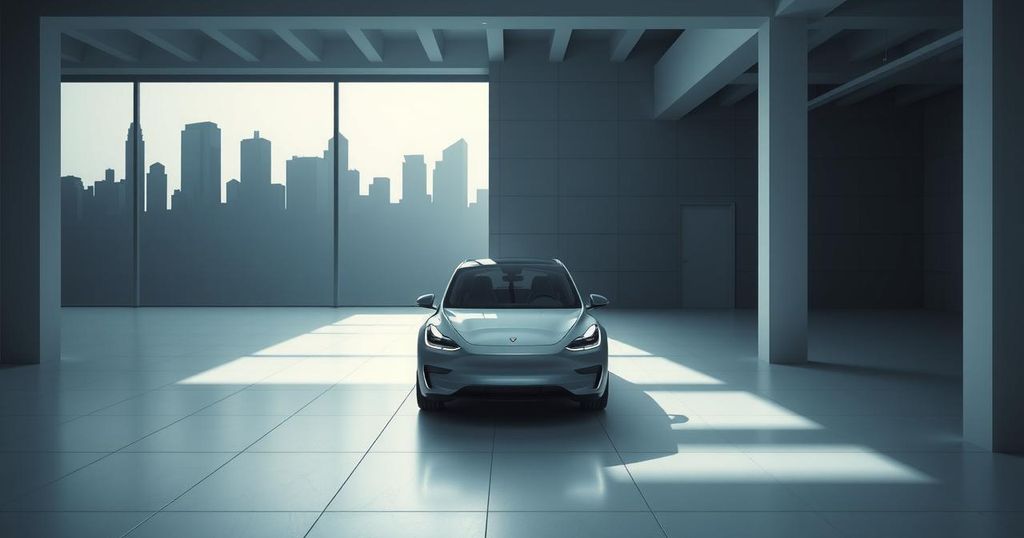Tesla has experienced alarming sales declines in China, with February sales plummeting 49.2 percent year-over-year. This decline comes amid stiff competition from local rival BYD, which saw a 90.4 percent increase. Challenges, including recalls and delayed features, further complicate Tesla’s market position as stakeholders weigh the effectiveness of Musk’s strategies.
Tesla is currently facing significant challenges in the Chinese market, once regarded as a reliable source of sales. In February, the company reported a stark 49.2 percent year-over-year decline in sales, contributing to an overall 28.7 percent drop in the preceding year. Compounding these issues, rival EV manufacturer BYD experienced a remarkable 90.4 percent sales surge in the same month, underscoring Tesla’s declining competitiveness.
This downturn is reflective of broader sales difficulties linked to Elon Musk’s political involvement, and it highlights the highly competitive landscape within China’s corporate environment. The Chinese market is characterized by numerous tech firms vying for market share, with many companies engaging in practices such as reverse engineering and aggressive pricing strategies to gain consumer traction.
For instance, the emergence of Chinese AI startup DeepSeek showcases the rapid innovation occurring within this sector. Contrastingly, the U.S. tech industry is often dominated by major monopolies benefitting from government support, hindering competition. In the realm of electric vehicles, more than 200 manufacturers are competing for market presence in China, placing immense pressure on Tesla.
Tesla has recently endured setbacks, including the recall of over one million vehicles in China due to serious software issues affecting several models. Earlier, the company recalled 1.5 million vehicles due to faults in trunk latches that raised safety concerns. Furthermore, the implementation delay of Tesla’s Full Self-Driving (FSD) feature added to the company’s woes, as it is fraught with operational failures on Chinese roads.
Less than ten percent of Chinese Tesla owners are eligible for the FSD feature, while other local manufacturers have provided advanced capabilities at no extra cost to a broader audience. Although these setbacks do not conclusively indicate the end of Tesla’s dominance, they pose significant challenges as stakeholders evaluate the risks associated with Musk’s ongoing strategies in the highly competitive marketplace.
In summary, Tesla’s recent sales figures in China indicate a troubling trend, marked by a significant drop in market presence coupled with increased competition from local firms. Despite challenges, including recalls and delayed features, stakeholders must assess the implications of Musk’s approach in navigating the complexities of the Chinese market. The evolving landscape underscores the need for Tesla to adapt to maintain its standing within the electric vehicle sector.
Original Source: futurism.com






